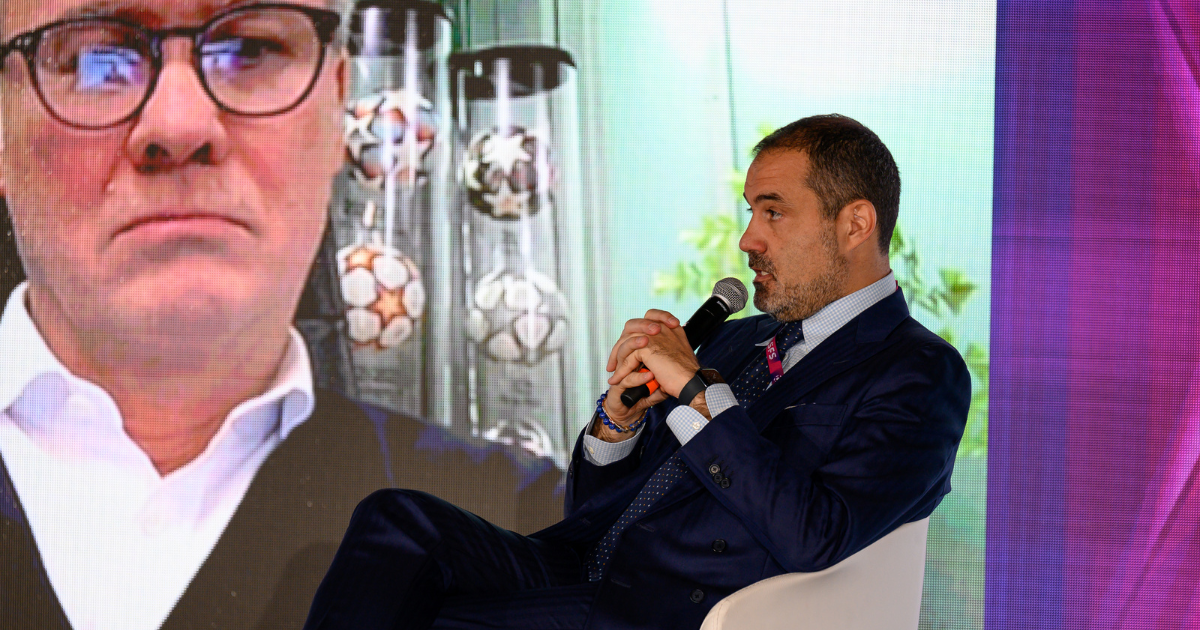
SFS24: The Football of Tomorrow Between Challenges and Growth Opportunities
“There’s a lot of football, maybe too much, but the game cannot stop”. With these words, Andrea Butti, Head of Competitions at Lega Serie A, opened the debate on the evolution of football competitions during SFS24. Moderated by Monica Bertini, a journalist at Sport Mediaset, the panel featuring Butti and Giorgio Marchetti, Deputy General Secretary of UEFA, highlighted how modern football is undergoing an unprecedented transformation with profound impacts on both the sporting and commercial fronts.
The key issue remains scheduling, a complex challenge intertwining sporting demands, broadcasting rights, and the goal of keeping football a competitive product in global markets. However, UEFA’s studies reveal that despite the increase in matches, the average playing time per player has been mitigated through innovations such as five substitutions and broader squad rotations.
Marchetti offered an additional perspective, focusing on the evolution of European competitions: “With the new Champions League format, we have increased revenue distribution from €177 million to €308 million. For many clubs, income from UEFA competitions represents up to 45% of their total revenue“.
This change is not just economic: with the introduction of the Conference League, UEFA has aimed to give value to clubs outside the top five leagues, broadening the pool of participants and strengthening the concept of solidarity between teams and leagues. However, the question remains on how to maintain the appeal of these competitions without compromising the physical sustainability of the players.
The panel also discussed the role of fans, who remain the heart of football despite the globalization trends in the football industry. Butti suggested that Serie A could, in the future, adopt innovative formats, perhaps inspired by the NBA or NFL, bringing matches to foreign markets to expand their audience. However, he emphasized that Italian fans must always be the first to benefit from any changes.
Football, with its blend of emotions, business, and tradition, is now facing complex challenges that require strategic vision and innovative solutions. The evolution of competitions is not only an economic necessity but also an opportunity to redefine the relationship with fans and expand the global appeal of the game. It will be crucial to strike a balance between the physical sustainability of players, entertainment, and the cultural identity of the sport, ensuring that football remains not just a business but a shared passion across the world.



